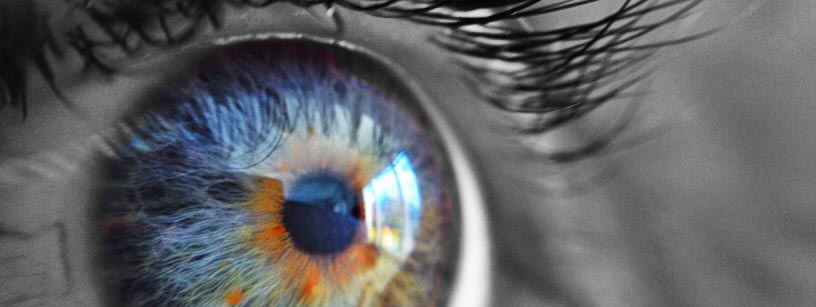February is Age-Related Macular Degeneration Awareness Month. As many as 11 million people in the United States have some form of age-related macular degeneration (AMD) which is the leading cause of severe, permanent vision loss in people over the age of 60. Unfortunately, this number is expected to double to nearly 22 million by 2050.
What Do You Need to Know About Age-Related Macular Degeneration? Age-related macular degeneration is a disease in which an individual’s central vision is affected. People with AMD have trouble with straight on vision such as driving or reading. Adopting healthy habits early or supplementing with the right nutrients can help to maintain a healthy macula.
AMD can be both genetic or a result of an unhealthy lifestyle. AMD typically starts around the age of 55 or older and according to WebMD.com, “if you’re in the early stages of age-related macular degeneration you may not have symptoms. The first sign you may notice is a gradual or sudden change in the quality of your vision or that straight lines appear distorted to you. This may gradually turn into a dramatic loss of your central vision.” Since early stages may not have symptoms, it is important to visit your eye doctor yearly for an exam.
As AMD progresses, additional symptoms may include:
- Complete or partial loss of clear vision — vision is mostly shaken or blurry while facing difficulty reading fine prints or driving
- Rare, poorer, or distinct color perception
- The center of the vision is primarily dark, unclear, and blurry
- Straight lines appearing distorted
- Often occurrence of whiteouts in the center of the vision
Individuals who are at high risk of developing AMD include:
- Current or previous smokers
- Individuals with a family history of age-related macular degeneration
- Obesity or unhealthy weight levels
- Individuals having a diet high in saturated fats
- Individual with hypersensitivity
Although we’re unable to change heredity, we can incorporate lifestyle changes to prevent AMD including:
- Quit smoking. Join a rehabilitation program if the smoking habit is beyond your control
- Introduce dark, green leafy vegetables to your diet. Don’t consume them occasionally. Ensure regular intake
- Ensure regular intake of fruits and nuts
- Eat fish. If you cannot or do not want to eat fish, then you can opt for taking fish oil supplements
- Maintain a healthy physique. Work out regularly
- Restrict your consumption of refined carbohydrates
- Maintain healthy blood pressure. Ensure that your blood cholesterol levels and blood pressure remain under control
- Get a regular eye exam
- Take multivitamin supplements daily
Supplementing Your Diet
Viteyes® offers a variety of eye formulations based on the AREDS2 study to promote macular health. Their most popular Viteyes® AREDS 2 Capsules and Viteyes® AREDS 2 Zinc free supplements are allergen-free, utilize natural Vitamin E, and formulated in even smaller easy-to-swallow capsules. AREDS 2 supplements may be recommended by your eye care physician and include Vitamin C, E, Lutein, Zeaxanthin, Zinc, and Copper.
Resources for Those with Low Vision
Literacy is critical to personal independence and access to information and entertainment. Reading is something that most of us take for granted until we are no longer able to or it becomes increasingly difficult. Imagine, signs on the road are nothing more than a passing blur, your favorite restaurant menu is a fuzzy mess, and you can no longer identify the questions on documents. Not only is low vision incredibly frustrating, but it also causes isolation and depression, robbing those who suffer from it of their independence and freedom. Some options available to the legally blind include:
- Large print books and forms
- Optical and non-optical electronic magnifying devices
- Large-print electronic device options
- Audio text-to-talk devices and interpreters
- Alt image text on web photos
- Braille
- Low vision helpful apps
- LookTel
- KNFB Reader
- VizWiz
- TapTapSee
- Ariadne GPS
- Be My Eyes
- Color ID
- TalkingTag
- Visible Braille
- Talking Calculator
- BeSpecular
Viteyes® not only specializes in eye supplements, we are also committed to providing you with the latest educational information about eye health and how we can help everyone have a Life in Sight™. Always consult your doctor before implementing lifestyle changes.
